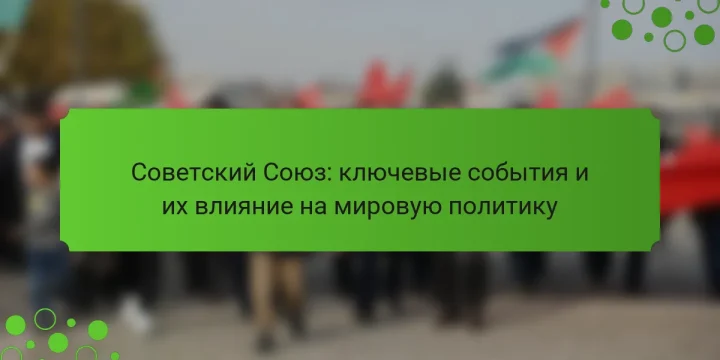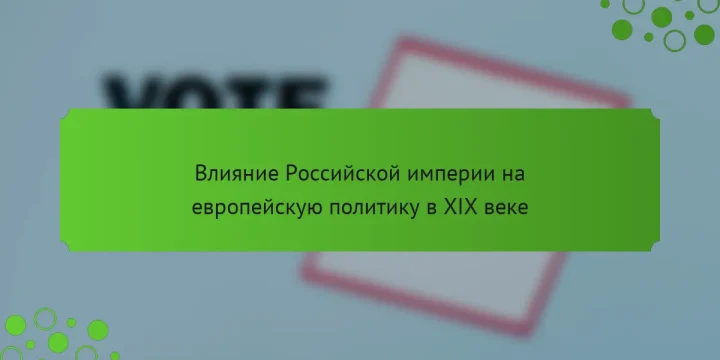
The Soviet Union was a state formation that existed from 1922 to 1991, uniting 15 republics, including Russia, Ukraine, and Belarus, under Marxist-Leninist ideology. Significant events in its history include the October Revolution of 1917, the establishment of the USSR in 1922, the Great Patriotic War from 1941 to 1945, and the dissolution of the Soviet Union in 1991. The Soviet Union emerged as one of the two superpowers during the Cold War, influencing global politics and economics. The article will explore the key historical events and their impact on contemporary world politics, including the Cold War, decolonization, and the spread of communism, as well as the economic and cultural consequences of Soviet influence. It will also highlight the importance of archival materials and comparative analyses to understand the legacy…








